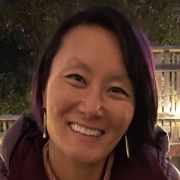
Sulggi Lee, MD PhD, is a Professor of Medicine at the University of California, San Francisco (UCSF) and a faculty member in the Division of HIV, Infectious Diseases, and Global Medicine. She also serves as an attending physician at the San Francisco General Hospital inpatient infectious diseases and HIV consult service and in the Ward 86 HIV Clinic. Through patient-oriented studies, her team uses high throughput genetic, immunologic, and mathematical modeling to identify host-specific mechanisms of disease. Projects include studies investigating the effect of chronic inflammation on cardiovascular disease, host factors involved in HIV persistence, and the impact of methamphetamine (MA) use on worsening health outcomes in people with HIV (PWH). Dr. Lee is the PI of UCSF Treat Acute HIV cohort, which provides immediate antiretroviral therapy (ART) to newly diagnosed acute HIV individuals in the San Francisco Bay Area, PI of the Effect of Methamphetamine on Residual Latent HIV Disease (EMRLHD) cohort, Co-I of the UCSF SCOPE HIV cohort, which includes over 2,500 HIV+ infected participants, and during the COVID-19 pandemic, she developed the acute COVID-19 Host Immune Response Pathogenesis (CHIRP) cohort. Her current funding includes an NIH NIAID R01 grant to explore the mechanisms by which NOD-like receptor 3 (NLRP3) inflammasome signaling drives systemic inflammation during chronic treated HIV disease, an NIH NIDA R61/R33 award to identify mechanisms by which methamphetamine (MA) contributes immune dysfunction and residual HIV transcription during ART, and an NIAID R56/R01 award to characterize early host responses during acute treated HIV.
